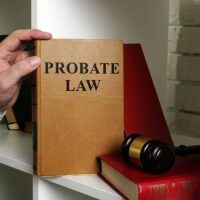When Can an Executor Start Paying the Heirs of an Estate?

An estate executor or Personal Representative is the person who has been named to administer the estate of a deceased person.
The PR is either named by the testator in the will or is appointed by the Court where the PR named in the will has resigned or where the decedent died intestate or without a will.
In Massachusets, creditors have one year from the date of death to file a claim in a probate. If the PR has distributed assets out of the estate to heirs or other individuals named in the will and there is insufficient assets to pay any creditors’ claims, the PR is personally liable for the payment of these debts. If it is likely that a creditor is owed money, a Personal Representative is advised by counsel to the estate to wait until the close of this period before making any distributions. At that time, the PR will typically close the estate by filing a Closing Statement with the Court that provides the PR has provided an accounting to the beneficiaries or will file a final Account with the Court.
As the PR, you take a chance in distributing the estate not only before the creditor period has expired but also before a final accounting is provided or approved and a surety bond, if any, is released.
Nj.com’s recent article entitled “Can I distribute inheritances now or do I have to wait?” says that if one of the beneficiaries doesn’t accept the executor’s form of accounting and his or her purported share, the executor will need to bring an action in court seeking its approval of a formal accounting and release as executor. This process of formally closing an estate can be expensive and, if there is no misfeasance by the executor found by the court, the expenses for this formal procedure is usually paid for from estate funds or assets. This reduces the total pay-out to heirs. As a result, it reduces all the beneficiaries’ distributive shares.
An executor has a fiduciary duty to the beneficiaries of the estate, which means he or she must manage the estate as if it were their own and manage the assets prudently. Thus, an executor can’t do anything that intentionally harms the interests of the beneficiaries. If the executor decides to pay some beneficiaries before all of the named beneficiaries agree to the distributions, or before the expiration of the creditor period, he or she may not have the funds to bring the formal accounting action in court.
It’s usually a best practice to wait until everyone approves the accounting and provides the necessary paperwork, before making any distributions to any heirs. This article highlights New Jersey, and not Massachusetts, procedure, but the article highlights how probate is time and cost inefficient and why an individual or family may want to speak with an estate planning attorney about how to avoid probate at death.
Reference:nj.com (May 8, 2020) “Can I distribute inheritances now or do I have to wait?”
